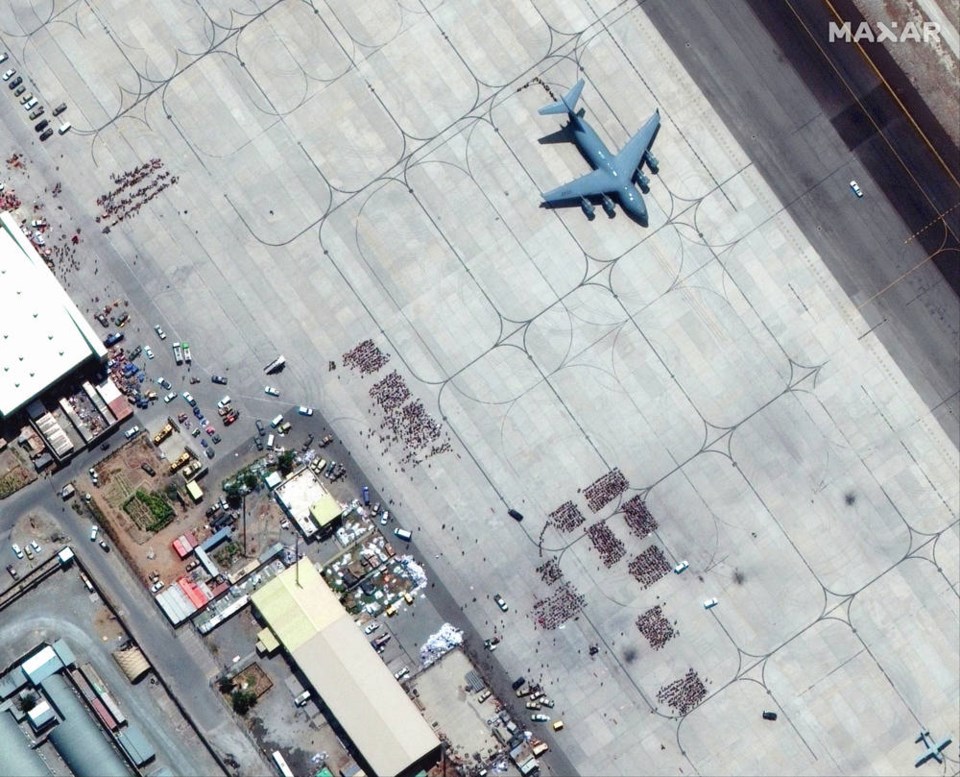As the shambolic exit from Kabul unfolds, Joe Biden’s presidency hangs in the balance.
Biden centred his 2020 campaign around the slogan “America is back.” In the view of America’s allies, the U.S. is gone.
Britain’s London Times reports: “Ministers have warned that Britain will have to tear up its foreign policy after the debacle in Afghanistan, amid flaring tempers about America’s decision to cut and run.”
Former prime minister Tony Blair branded Biden’s decision to withdraw “imbecilic.”
Norbert Röttgen, chairman of the German parliament’s foreign relations committee, added: “… the early withdrawal was a serious and far-reaching miscalculation by the current administration. This does fundamental damage to the political and moral credibility of the West.”
And a former U.S. ambassador to Afghanistan worried that “Biden’s strategic impatience has given a huge boost to militant Islam everywhere.”
There are two separate issues here. Was it wise for the U.S. to leave Afghanistan? And was the departure managed as well as circumstances permitted?
Biden’s reason for leaving (shared by Donald Trump) was that America had kept troops in that tortured country for 20 years, and the Afghan government still could not stand on its own feet.
Fair enough. But then again, the U.S. still has 54,000 troops in Japan, 76 years after the end of the Second World War. Likewise 35,000 troops are still encamped in Germany, and 12,500 in Italy.
Are these countries incapable of bringing stability to their homelands? No. Those American troops are there to remind Russia that NATO is a living entity.
What about South Korea? Nearly 26,000 American troops remain in that embattled country, nearly 70 years after the war with the North concluded.
They are not there to build a nation. They are there to defend it.
And this is the crux of the matter. The role of U.S. troops in Afghanistan (all 3,500 of them, give or take) was not to build a nation. That had obviously failed.
It was to maintain stability in the region and prevent a resurgence of militant Islamism. Notably, no American troops had been killed in that country over the previous 18 months.
By abandoning that role, the U.S. has told the world that it is no longer willing to play a leading part in preserving peace, and that its word counts for nothing.
Pensive observers in China and Russia will draw their own conclusions.
What about the departure? Mere words fail to capture the unspeakable chaos, though one photograph tells the tale.
Taken, apparently, from inside a departing U.S. cargo plane, it shows an Afghan man clinging to the outside of the aircraft, fields and roads visible hundreds of feet below. He and others fell to their deaths in this manner.
No one in the administration really knows how many Americans, or other foreign nationals, have been left behind, though present estimates suggest several thousand.
And uncounted Afghans who co-operated with U.S. forces as advisers or interpreters are now being hunted down by the Taliban. Their fate can only be imagined.
As I write this, no U.S. government official or military leader has resigned, been fired or faces court martial.
That pretty much sums up the prevailing attitude of this administration to what some American newspapers are calling “Dumbkirk.”



